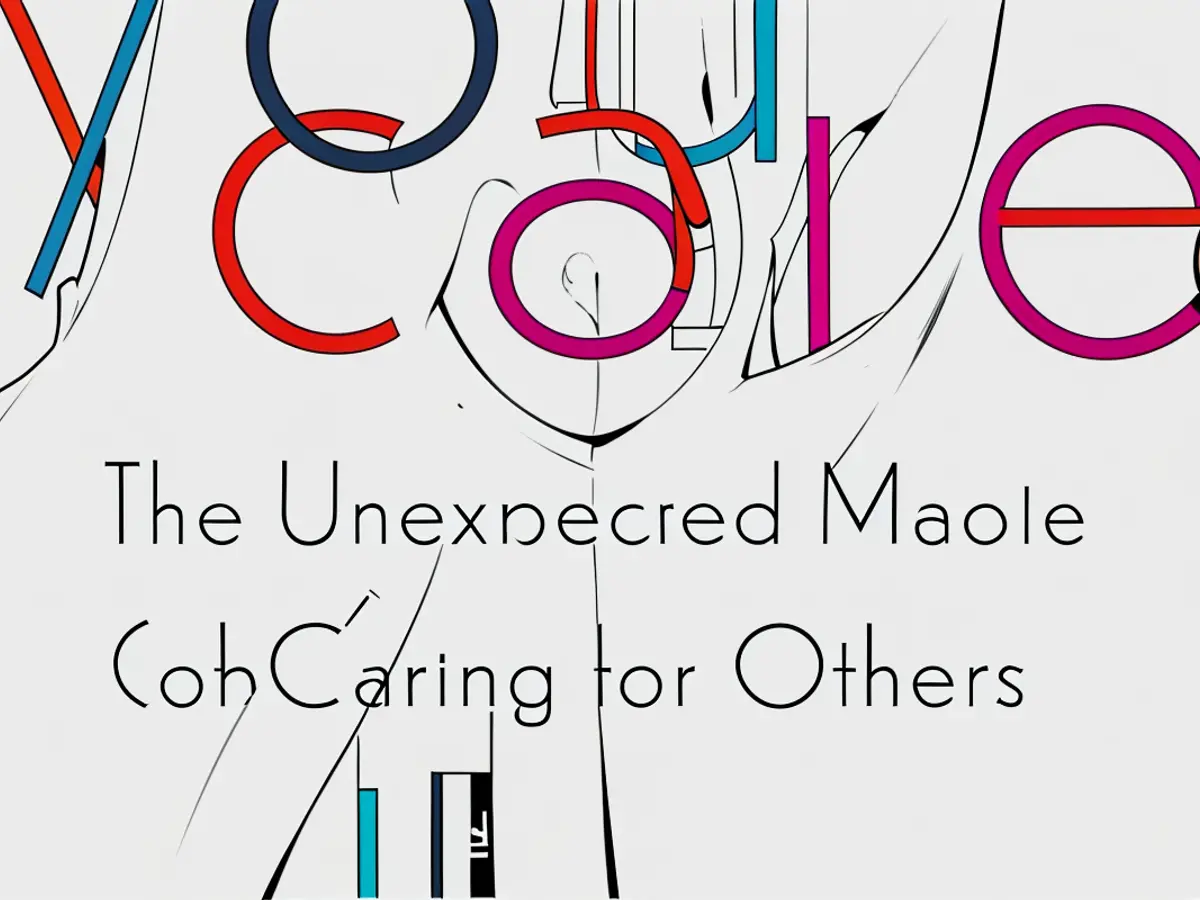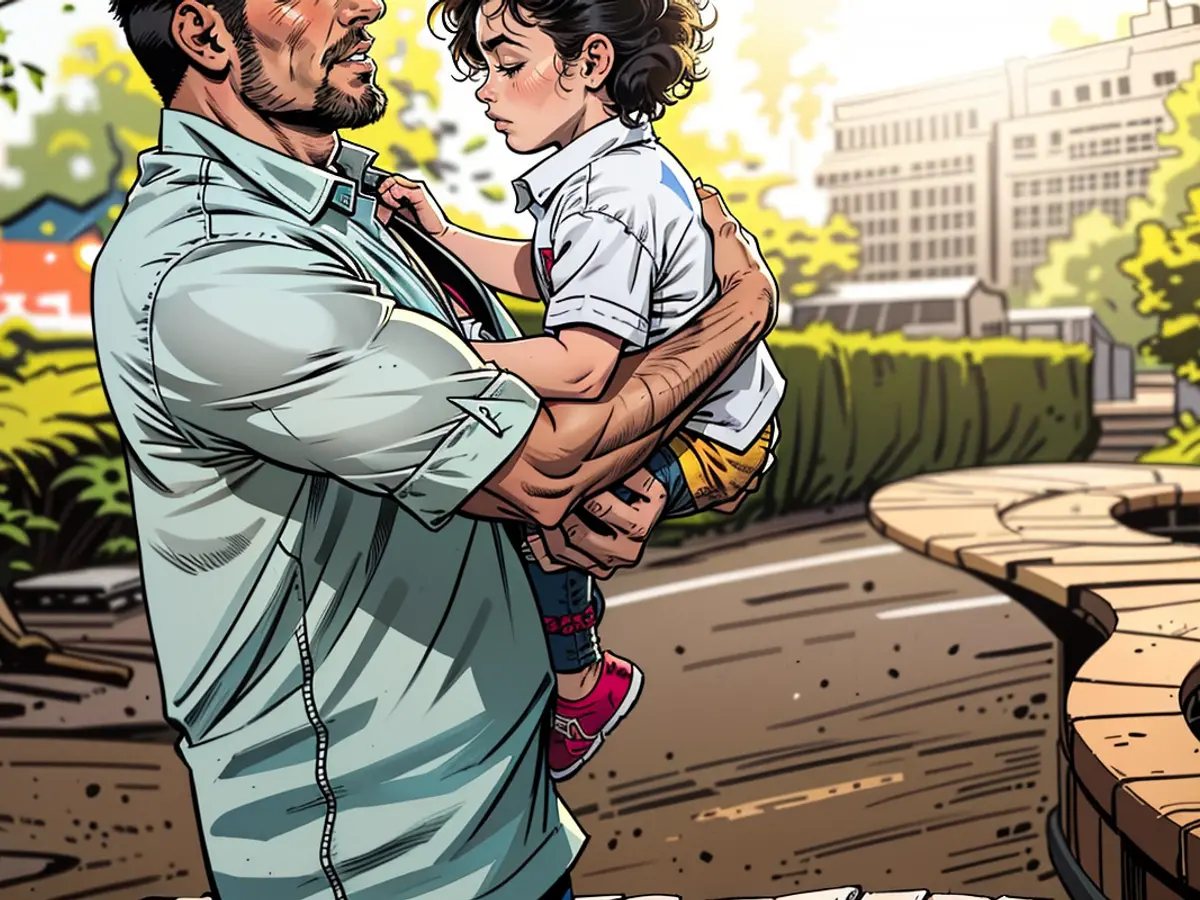Parenthood brings numerous benefits to fathers. Exploring the reasons.
Fatherhood is a topic we should discuss.
Being a dad can provide numerous psychological benefits. Research I conducted for my book "When You Care: The Unexpected Magic of Caring for Others" revealed that it enables men to express emotions and exhibit behaviors that societal expectations often forbid.
In professional or athletic settings, men are pressured to mask vulnerability, empathy, and sensitivity. Display these traits and face the risk of being labeled "feminine" or "weak."
However, children present an opportunity for men to uncover and express these aspects of themselves, often without fear of judgment or rejection. They're allowed to be loving, gentle, and compassionate, unafraid to convey tenderness. And many men thrive in this newfound emotional freedom.
Matt Englar-Carlson, director of the Center for Boys and Men at California State University, Fullerton, elaborated on this during an interview for my book, "It's when we place men in caregiving roles that they have a chance to delve into parts of themselves that are deeply ingrained but rarely exhibited or encouraged by society."
Consider Eric Gardner, a former U.S. Army company commander who discovered in fatherhood a means of rediscovering repressed emotions and processing trauma. Fatherhood prompted Gardner to shed the stiffness and aggression instilled during his military service and develop heightened empathy, listening skills, and an ability to empathize with others' weaknesses and insecurities. Eventually, he applied these skills to his own well-being to heal from post-traumatic stress disorder.
"Being with my daughters made me realize I had to understand myself," Gardner said.
Dads do more parenting than you think
Though it may not always appear so, fathers are becoming more involved in childcare.
"If you're a woman who feels each day is a battle with your husband to ensure he participates in the household tasks and childcare, I'm sure it's infuriating. But, in a historical context, the changes we're seeing are quite significant," Stephanie Coontz, a family studies historian, explained in an interview for my book.
In 1965, dads spent an average of 16 minutes a day nurturing their children. By 2012, this increased to 59 minutes daily. Meanwhile, moms went from 54 minutes daily in 1965 to 104 minutes in 2012.
Unfortunately, this progress wasn't triggered by dads gaining a newfound appreciation for fatherhood or a desire to bond with their children. Instead, women's growing presence in the workforce prompted the change.
"Nothing has influenced men's involvement in caregiving more than women attaining a more significant role in the workforce," Brad Harrington, executive director of the Boston College Center for Work & Family, observed.
Sadly, women's professional pursuit came at a cost for men. Being a hands-on dad carries a stigma, which flies in the face of conventional masculinity.
Remember "Mr. Mom"? This movie about a stay-at-home dad has long been used by society to dismiss fathers who devote too much time to parenting. These fathers were subject to ridicule, teased as "less masculine" for embracing women's roles and responsibilities.
Professionally, men are applauded for being fathers, Harrington noted, but only if they refrain from seeking flexibility in their job obligations to accommodate parenting responsibilities - like working remotely when a child is ill or leaving early for a doctor's appointment. Dare to request such accommodations, and you'll likely experience professional repercussions, much like mothers.
However, men continue pushing against these limitations and taking greater roles in raising their children. As Harrington's research shows, two-thirds of dads are eager to spend more time with their kids, even when they're already spending significant amounts of time with them.
Escaping restrictive gender norms
A significant part of the enjoyment dads derive from fatherhood stems from escaping rigid gender conventions, experts say.
"The stereotype of traditional masculinity - characterized by stoicism, competitiveness, dominance, and aggression - is, overall, damaging," a 2018 report from the American Psychological Association (APA) claimed.
As men embrace parenthood, they redefine masculinity, showing that being a caregiver can be manly.
Eric Gardner's experience illustrates this phenomenon. As a former military officer, Gardner understood what it means to exhibit traditional masculine traits like stoicism and aggression. However, the role of his daughters in his life gave him the freedom to break free from these cultural expectations and develop empathy, listening skills, and an ability to connect with others' struggles. After processing his own trauma, Gardner utilized these newly acquired abilities to improve his emotional health.
"Being with my daughters made me realize I had to understand myself," Gardner concluded.
In reality, the patriarchy has regarded men favorably. However, the masculinity essential for surviving in a patriarchal society has a high price. Conventional male roles are negatively correlated with poor physical and mental health, low life fulfillment, and low self-esteem.
Englar-Carlson argues that being attentive to others provides men with a possible defense against the shame of failing to fulfill the stereotypically male standards. This practice can help them feel useful, meaningful, and relevant.
At Fathering Together, an organization for supporting dads, participants frequently engage in discussions on how to become more empathic and sensitive fathers. They rely on each other to understand how to express vulnerability and move beyond the mindset that "a father knows best." Their aim is to be more empathetic and tender. For these fathers, such conversations are a scarce chance to discard their manly exteriors and expose their true selves.
Embracing vulnerability's power
David Bulman, a member of the Fathering Together community, was reared in a Colorado Springs U.S. Army installation, where conventional manhood held sway. Bulman defied his father's expectations by adopting a tough-guy lifestyle involving drugs and crime, eventually leading to his arrest at age 22.
A decade after his release, he sought to emulate a different path by reconnecting with an old friend who had been a significant person in his life while incarcerated. They eventually had a child, and Bulman's caretaking responsibilities aroused the sensitive aspects he had long suppressed.
"My entire world had changed. I'm not as hard as I used to be. I had to learn how to have emotions and feelings and how to be human, not a robot," he said.
"I had to change everything about me," he continued. "I switched from being a cold-hearted jerk to being the complete opposite."
To raise his kid, he had to evolve from a hardened, unfeeling individual to someone who showed sentiment and understanding. He had to learn to ask for assistance, as he had previously tried to maintain his facade of self-sufficiency and address issues on his own.

Read also:
Fatherhood can provide men with an opportunity to express emotions and behaviors that societal expectations often forbid, leading to improved emotional well-being. Many men, like Eric Gardner, find in fatherhood a means to rediscover repressed emotions and process trauma, fostering heightened empathy and self-awareness.
Collaboratively involved fathers can benefit from escaping restrictive gender norms, resulting in improved physical and mental health, increased life fulfillment, and bolstered self-esteem. As traditional masculine traits can lead to adverse consequences, being attentive to others' needs can serve as a defense against shame and a means to feel useful and relevant.








